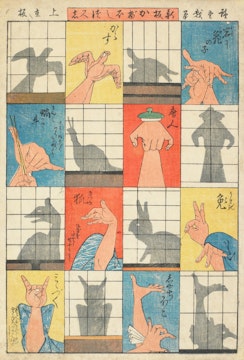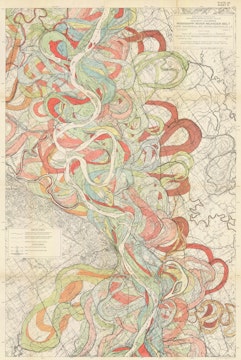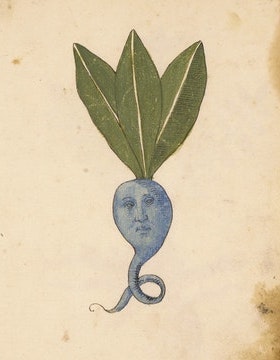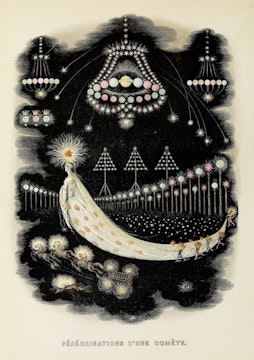
Chrysal; or, The Adventures of a Guinea (1760)
One of the first of the immensely popular 18th-century "it-narratives", Chrysal; or, The Adventures of a Guinea, by the Irish writer Charles Johnstone, tells the tale of a coin and the human intrigue to which it finds itself bearing witness. After a rather dramatic and wonderfully overwrought beginning in which we learn of the coin being bestowed with consciousness and dug from a Peruvian mine, the monetary narrator proceeds to dish the dirt on various celebrities of the time as it passes from hand to hand, being conveniently present for a variety of gossip-worthy conversations, romps, and scandals. Spending some time circulating among the streets and elite of London, the coin also finds itself in the courts of Lisbon and Vienna, and the front-lines of war in Germany (the Seven Years' War was raging at the time), Canada, and the Caribbean.
Upon publication in 1760 (see scan of first edition below), the book was a runaway success, being issued in five separate editions in its first three years alone. Capitalising on the demand, Johnstone brought out an expanded four-volume version in 1765, which like-wise was lapped up by the readers. On the back of Chrysal's success there came a slew of similar titles told from the perspective of inanimate objects, nearly always in the form of "The Adventures of a ....", including a black coat, a watch, a corkscrew, and a Hackney coach. Not everyone, however, was enamoured by this new sensation. An issue of the Critical Review from 1761, in the course of appraising The Adventures of A Rupee, writes:
This mode of making up a book, and styling it the Adventures of a Cat, a Dog, a Monkey, a Hackney-coach, a Louse, a Shilling, a Rupee, or — any thing else, is grown so fashionable now, that few months pass which do not bring one of them under our inspection. It is indeed a convenient method to writers of the inferior class, of emptying their common-place books, and throwing together all the farrago of public transactions, private characters, old and new stories, every thing, in short, which they can pick up, to afford a little temporary amusement to an idle reader. This is the utmost degree of merit which the best of them aspire to; and, small as it is, more than most of them ever arrive at.
Mar 17, 2016










